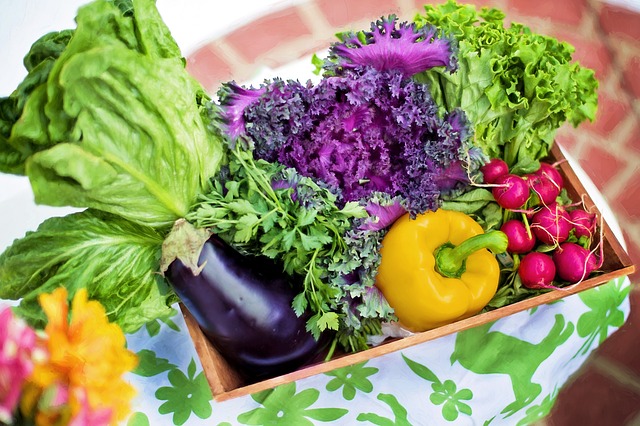What does it mean to grow organic? Organic gardens use natural soil amendments (compost, ash, bone meal, seaweed, mulch, etc) to promote healthy soil and good plant growth. They focus on biological processes in the garden to produce an ample harvest with no synthetic chemicals. Sound good?
Here’s a few reasons why you should grow organic:
Grow Organic to Improve your Quality of Life
Growing your own food will make you healthier, happier and richer. You can:
Eat More Nutritious Food
Organic vegetables are more nutritious than those grown with synthetic pesticides. They are higher in minerals and vitamins, particularly vitamins E and C. A recent study from Washington State University found that organic fruits and vegetables deliver 20-40% more antioxidants than conventionally grown produce. Antioxidants help protect your cells from change that can lead to cancer and other chronic diseases.
Enjoy Tastier Food
In addition to providing more minerals, vitamins and antioxidants, not to mention fewer pesticide residues, organic produce simply tastes better. Organic farmers know that healthy produce grows in healthy soil, so they nourish the earth with compost and mulch. Richer soil gives richer flavor to your favorite veggies.
Save Money
What? But organic food is expensive! If you grow organic in your own kitchen garden, you’ll watch your grocery bills shrink like a snowman in July.
Get Healthy by Growing your own Food
One of the benefits of growing a garden is exercise. You’ll be breathing fresh air, carting around compost, mulch and digging new beds. Start to grow organic, wait one summer, and check out the results. You will be fitter, stronger and healthier in every way.
Keep Chemicals Off Your Plate
Decades ago the Environmental Protection Agency (EPA) approved many chemicals for commercial use. Since then, lots of research has been conducted, linking many of these herbicides, fungicides and insecticides to cancer, birth defects, nerve damage and genetic mutations. But legislation hasn’t been updated to remove all the chemicals from the “approved” list. Growing all your own food or some of it let’s you be confident that you are only eating carrot, not cancer.
Grow Organic for Your Kids
The average child gets much greater exposure to carcinogenic pesticides than an adult. In part this is due to the “kids foods” that are widely marketed at restaurants, grocery stores and even schools. Grow organic, feed organic produce to your children and protect them from chemicals linked to autism and nerve damage.

Image courtesy of ashevillage.com
Grow Organic for Life
Making the decision to grow organic benefits more than just you and your family. It will help support life in your community and on the planet as a whole by:
Preventing Soil Erosion
The monoculture, machine tilled conventional farming methods rapidly erodes topsoil, leaving cropland barren, dry and infertile. In organic farming the soil is a valuable resource that is nourished and protected.
Protecting Water Quality
Synthetic pesticides take ages to break down. Until that happens they hang about in the groundwater, contaminating wells and city water supplies.
Saving Energy
The simple decision to grow organic can end our dependence on massive commercial farms that use more petroleum to sustain than any other American industry. We should all grow our own vegetables to reduce our reliance on oil.
Supporting Small Farms and Farm Workers
If you start to grow organic vegetables at home you will join a community of small farmers who support one another. Small, independent, family-owned farms produce healthier food in conditions that are healthier for everyone involved. The workers are not exposed to dangerous chemicals, the animals are raised humanely and the produce is not toxic.
Grow Organic to Promote Biodiversity
Most modern commercial farms plant a single crop in a large plot of land year after year. The soil is depleted, the plants are weakened, so more pesticides are needed. In contrast, a small organic garden provides food and habitat for bees, butterflies, birds, lizards and frogs.
Extended Reading
Learn how to grow organic vegetables in your own garden:

